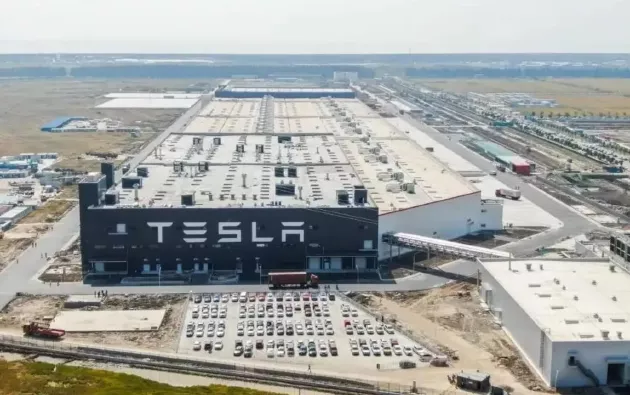With the epidemic situation gradually under control, electric vehicle orders began to pick up in May. According to the China automobile sales data released by the China Passenger Car Association, Tesla China's domestic sales in May was close to 10000 units, a sharp rebound from the sales in April. Li Bin, CEO of Weilai automobile, also said that the order volume of electric vehicles in May was unprecedented. However, due to the automobile supply chain and logistics problems caused by the epidemic, the output of electric vehicles may still be unable to meet the backlog of orders in the early stage. Tesla sales told China business news that it may take until the end of the year to place an order and collect the car.
According to the data of China Passenger Car Association, in the first quarter of this year, Tesla Shanghai Super factory produced 178887 electric vehicles, but in April and may, Tesla produced a total of 44301 electric vehicles. If the level of the first quarter is to be reached in the second quarter, it means that Tesla needs to produce nearly 135000 electric vehicles in June, but at present, this goal is still difficult to achieve.

In May this year, Tesla delivered a total of about 30000 electric vehicles. The company said that the current capacity utilization rate has been restored to 100%. To ensure safety, the factory still adopts the "double shift system" for closed production. The first financial reporter learned that before the outbreak, Tesla's weekly output (7 days, 24 hours) was close to 20000, that is, even if it recovered to the pre outbreak level, Tesla's auto output in June would not exceed 80000.
Even based on Tesla's full production of 80000 electric vehicles in June and the 44301 electric vehicles in April and may, it is expected that Tesla will produce about 120000 electric vehicles in the second quarter, which is at least 30% lower than the production of nearly 180000 electric vehicles in the first quarter.
Tesla CEO musk had predicted at the last quarter's earnings conference that the production capacity of Tesla Shanghai Super factory in the second quarter might be the same as that in the first quarter, but at present, Musk's expectation overestimates the actual production situation.
As global inflation intensifies the rising trend of raw material costs, the profits of electric vehicles will also be significantly affected. In the first quarter of this year, Tesla reported that its gross profit margin was close to 33%, but it became more difficult to maintain this level in the second quarter.
Since the beginning of this year, Tesla's share price has fallen by nearly a third. The epidemic has exacerbated Tesla's challenges in supply chain and labor costs. Musk has expressed his concern about the economy in an internal email, saying that "Tesla has surplus labor in many fields".
The same concern comes from Chinese electric vehicle manufacturer Weilai automobile. After the first quarter financial report was released on Thursday, the share price of Weilai motor plunged nearly 8%. The loss of the company in the first quarter reached US $280million, more than three times the loss of US $68.8 million in the same period last year.
The epidemic has also affected the production of Weilai automobile. Li Bin, CEO of Weilai, warned that rising commodity costs continue to squeeze profits. In the first quarter, the company's gross profit margin was 14.6%, down from 19.5% in the same period last year and 17.2% in the previous quarter. Li Bin predicted that with the cost control, the company's gross profit margin will start to rise in the third quarter.
Weilai delivered 25768 electric vehicles in the first quarter, up from 20060 in the same period last year. Due to the impact of the epidemic and the supply chain, the total delivery volume of Weilai automobile in April and may was only more than 12000. The company said that the delivery volume in the second quarter is expected to reach 23000 to 25000, which means that the delivery volume in June must exceed 10000.